In F1 today you win for having a fast car, a cohesive team and winning strategies. This would be normal. What we are witnessing, however, is the real upheaval of the situation on track as a result of the strategies. Was this what was wanted when they were introduced? Unfortunately, I believe so. The mistake of a top team is sought in order not to always let the same squads win. But this has little to do with F1 and, in my opinion, it’s the first reason to consider F1 today as a simple roulette in which often the best driver and the best car do not win.
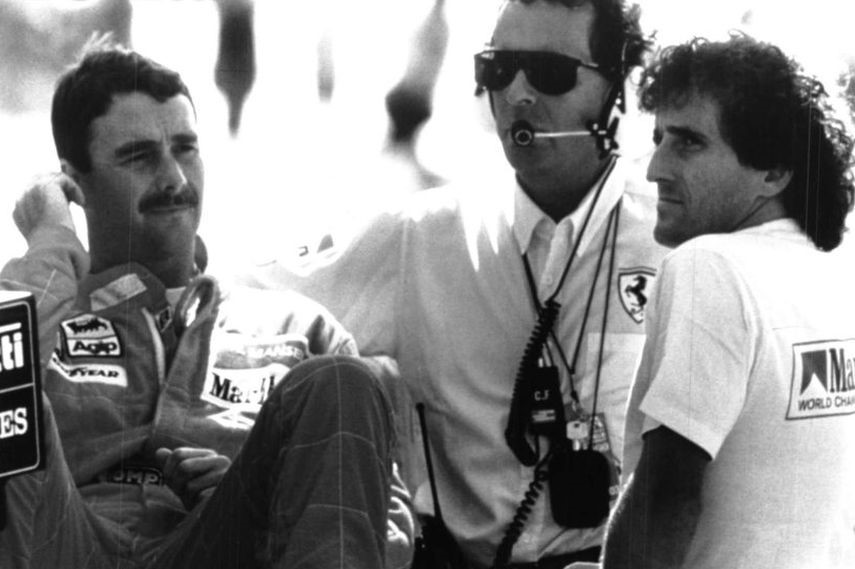
Cesare Fiorio, Nigel Mansell and Alain Prost at Ferrari in 1990.
Furthermore, the difference with the past in which the strategies already existed was that the work of the team principals and the "strategists" was carefully evaluated and the errors punished with almost immediate dismissal: we remember Chris Dyer who made Ferrari lose a championship with Alonso covering off the wrong driver or Cesare Fiorio who was dismissed when he allowed Mansell ramming Prost at the start of the 1990 Portuguese GP without taking measures.
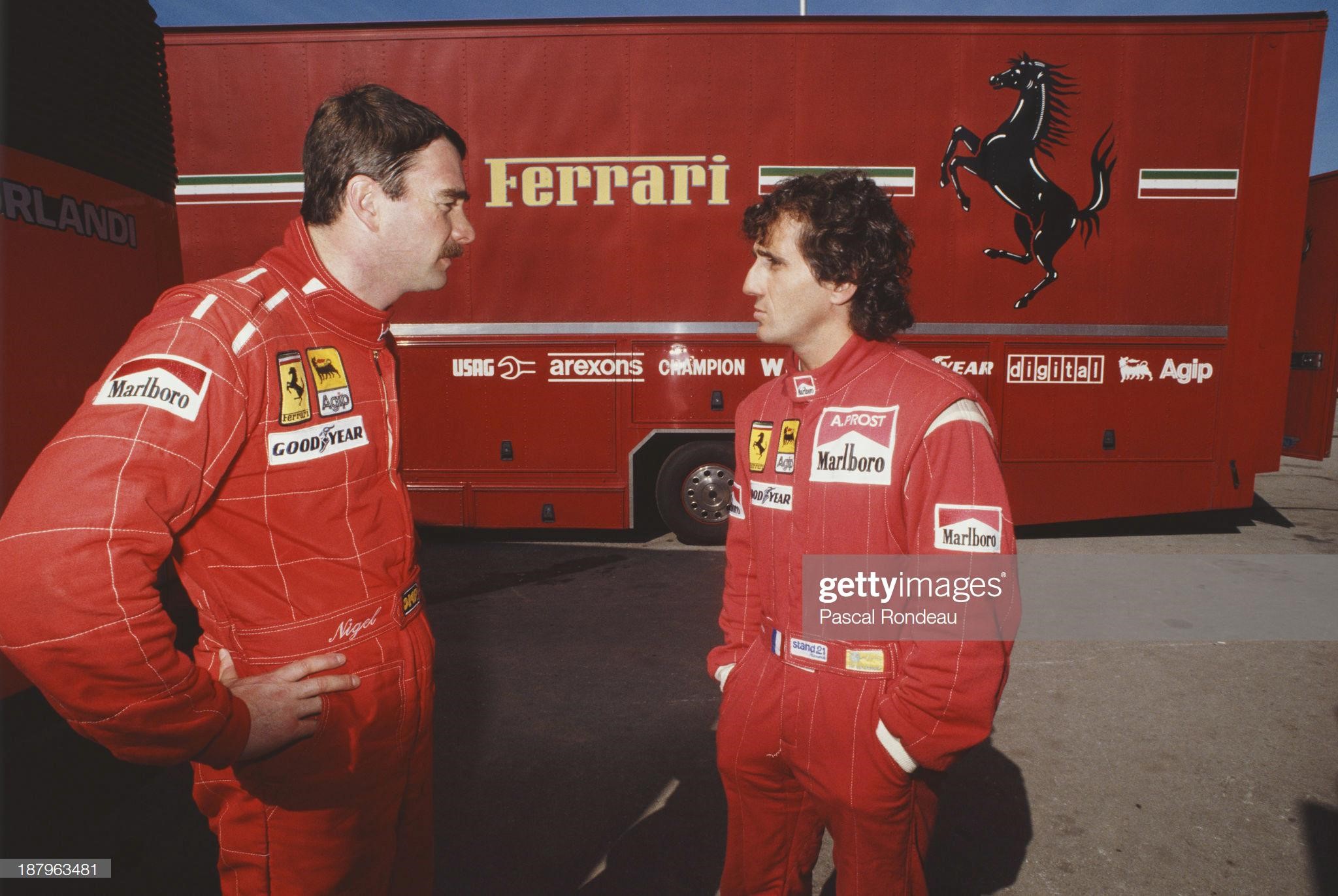
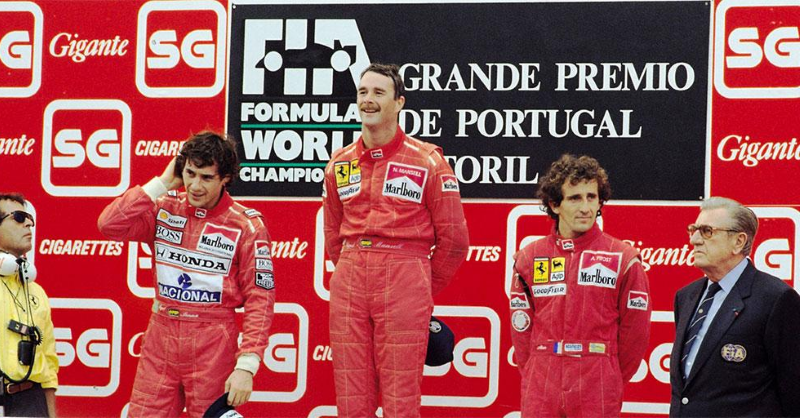
Nigel Mansell and Alain Prost, Ferrari, at 1990 Portuguese GP.
Today this is no longer the case because, for some reason, strategy errors are not even talked about, they simply do not exist. On Sunday we heard the only engineer Mazzola and journalist Umberto Zapelloni softly foreshadowing that there could have been errors on the part of Red Bull. For everyone else Verstappen had lost to Hamilton and Red Bull had achieved the best possible result. My arms just fell off.
Red Bull won four championships with a driver who was not the best (Alonso was the best), with a team principal who was not the best and with a car that was vastly better than the others. That is, Red Bull won because they had no opponents, except for one year Ferrari which did not win due to the aforementioned mistake. Today, however, Red Bull has the opponents and very strong, the men of Mercedes, the team with the best car, the best driver and the best team principal. But this year Red Bull, unlike the previous ones, could win: because in qualifying it had the best car, because it has a driver on the same level as Hamilton in terms of speed and, above all, the best design engineer of all F1, Adrian Newey. And why didn't it win the first three Grand Prixs? Because not only it doesn’t have the best team principal but he is not even in the top 5 and this is too much if you want to win. For this reason Hamilton will easily win his eighth title.
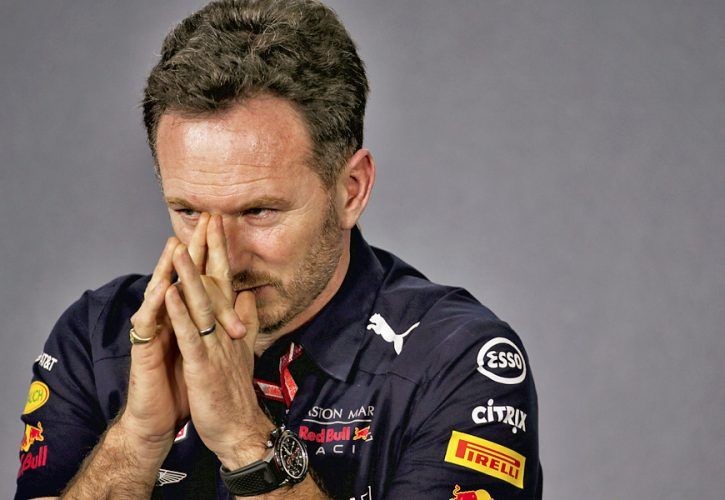
Chris Horner.
With another team principal - and I'm not saying a quantum mathematics genius - Verstappen would have won three times and Hamilton would have been second three times. How? Simply covering off Hamilton, nothing more, very easy and obvious but not for Horner.
Coming to Ferrari, Leclerc (for me a great driver, fully worthy of driving for Ferrari) would have finished twice in front of Norris in the two previous GPs if he had not let the English driver overtake him during the restart after the safety car. And he would have finished third - and therefore on the podium - on Sunday if the team would have decided to cover off Bottas. Why didn't they do it? To cover off McLaren was the answer. But, by covering off Bottas they would have covered off McLaren in the best possible way as Bottas finished far ahead of Ricciardo and Norris. What sense does it make for Leclerc to risk in qualifying to make the fourth fastest time and to start better than Bottas if then from the pits it is decided that Bottas is not his opponent? Do you want this from a strategy? If for Ferrari this can be considered a venial sin (Binotto is in general an excellent team principal) given that Maranello factory is not fighting for the championship, for Red Bull they were blue pencil mistakes.
What’s the point of changing tires in less than two seconds if you lose half a minute with strategy errors (incredibly frequent by all teams except Mercedes)? This is for me today the real evil of F1, advanced on anything but the selection of team principals. Today without a good team principal you can win races but not championships. One of the two: either the level of the team principals is improved or the strategies are eliminated. How many duels we remember in the Schumacher era with rivals changing tires in the same lap and returning on track fighting to stay in front. And so it also made sense to change tires at maximum speed, to get back on track before your rival. And it was also good for the show. Were the team principals who adopted the covering off more stupid then? No, they were better and not only those of the winning team but also those of the opponents and for this there was a struggle. And the best one won.
Today the strategists of the teams, instead of covering off to win, which would be what the shareholders and fans ask them, invent convoluted tactics based on theoretical calculations that have no match on the track, which is another thing and in which very often one does not manage to overtake for a thousand reasons, the aerodynamics, the opposition of the driver in front, the circuit that does not allow overtaking and so on. What sense does it make, especially when it is not necessary, to develop alternative strategies given that you are already in front? What else should you aim for if not staying in front, winning laps ahead, reflecting yourself in the beauty of your calculations? What is the point of calculating to put a car on track with fresher tires if it then fails to overtake? What sense does it make to take the risk of a different strategy than the one of who follows you when, by photocopying the strategy of the car that follows, you are already certain to be in front? Are you facing a maths exam or a F1 race? And, faced with the proposals of their engineers-strategists, the team principals, who don’t know the track, don’t feel like contradicting their decisions, not wanting to take responsibilities that would anyway fall to them and endorse wrong decisions. And so the only hope for a driver to win anyway lies in refusing to execute those decisions. And even here the best is Lewis Hamilton, the only one able (together with Vettel) to understand the situation making the best choices and to know how to impose them on the team.
The team principal should have the profile of a successful entrepreneur because he has to deal with men and make them run at their best, he has to select the best elements by snatching them from competing teams if needed, he has to withstand the pressure of risky decisions and he has to know F1 well. He cannot be a bureaucrat who does his accountant chore because he will always and only take conservative decisions to protect his job and won’t have the priority of maximizing the result of the driver who instead, unlike him, risks his life on track. It is no coincidence that the names of the best team principals are those of Ross Brawn, Luca Di Montezemolo, Flavio Briatore (certainly not a model of ethics and elegance but, as Bernie Ecclestone said of him, he took the best men from all teams and won), Toto Wolf and Lawrence Stroll.
Dyer made scapegoat for Alonso title miss. Craig Llewellyn. 5 Jan 2011.
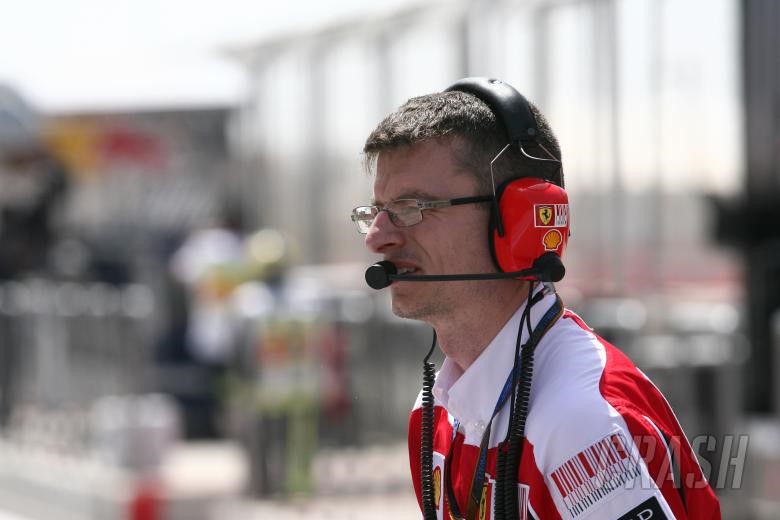
Chris Dyer has been made the scapegoat for Fernando Alonso coming up short in his pursuit of the 2010 F1 world championship, as Ferrari announced a reshuffle of its technical team.
Further to Ferrari team principal Stefano Domenicali's revelation that he almost quit the position following the Scuderia's failure to land a third F1 world title for Fernando Alonso, Maranello has confirmed that changes will be apparent in its pit-wall line-up for 2011.
Headlining the reshuffle, Australian Chris Dyer carries the can for the botched strategy call that saw Alonso mirror chief rival Mark Webber's early pit-stop in Abu Dhabi - a move which allowed Sebastian Vettel to claim the crown - and will be moved to another, as yet undefined, position within the Ferrari organisation for the coming season.
Dyer's replacement as head of race track engineering was announced late on Tuesday, with former McLaren man Pat Fry being entrusted with the role just months after making the move from Woking. The Briton already backs up technical director Aldo Costa and will be joined among the Scuderia's new-look management by the relatively unknown Neil Martin, who heads up the team's new operations research department. The 38-year old former McLaren employee arrives at Maranello from reigning champions Red Bull and will now report directly to Costa.
"Pat Fry will, in addition to his current role, take on the job of head of race track engineering," a Ferrari statement confirmed, "up until yesterday, this position was held by Chris Dyer and his role within the company will be redefined in the next few days."
Videos


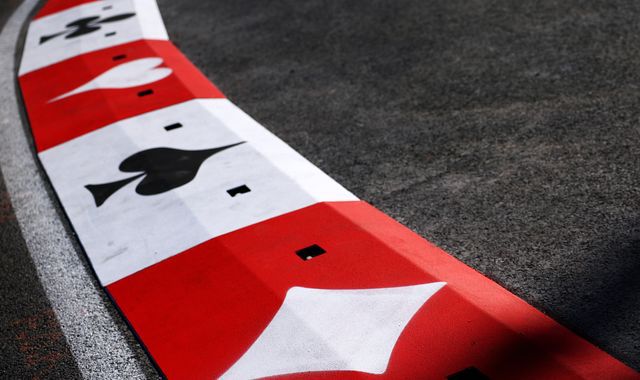
Comments
Authorize to comment